Email Magazine
Osaka Showroom(12/22/2021)
Satoshi Umemura, a doctor and a member of the House of Councillors, gave a lecture at the Nanophoton Osaka Showroom for the “Kagakusha Ishin Juku” led by Satoshi Kawata, Chairman and CEO of Nanophoton. This was the first time that the Osaka Showroom was used as a venue. The Kagakusha Ishin Juku started in 2009, and people with Ph.D.s and those who aspire to become Ph.D.s are participating as students. On this day, the lecture went on with themes such as how Dr. Umemura entered the world of politics and his thoughts on countermeasures against COVID-19 infection, and the discussion continued until it was dark outside. (Email Newsletter editor-in-chief / freelance writer Takeshi Nemoto)
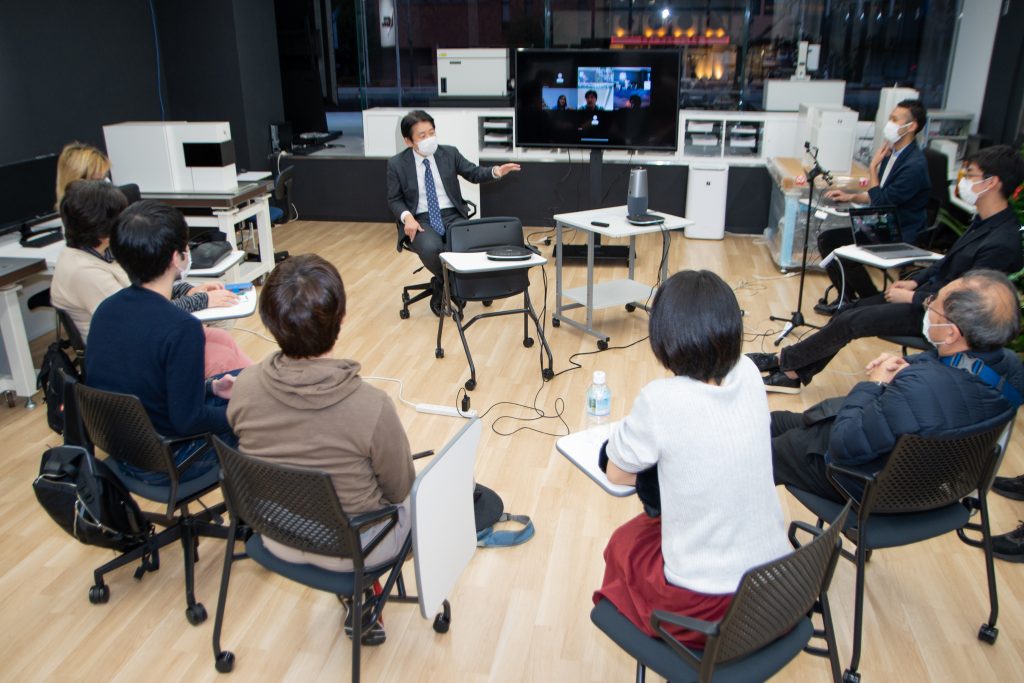
Kagakusha Ishin Juku is a school for fostering doctoral students and those who aspire to become doctoral students into human resources who can contribute to the world. The juku is held regularly in Osaka and Tokyo, inviting lecturers who are active in various fields, with the aim of providing guidance and practice for those who wish to advance beyond the path of a scientist into various other worlds.
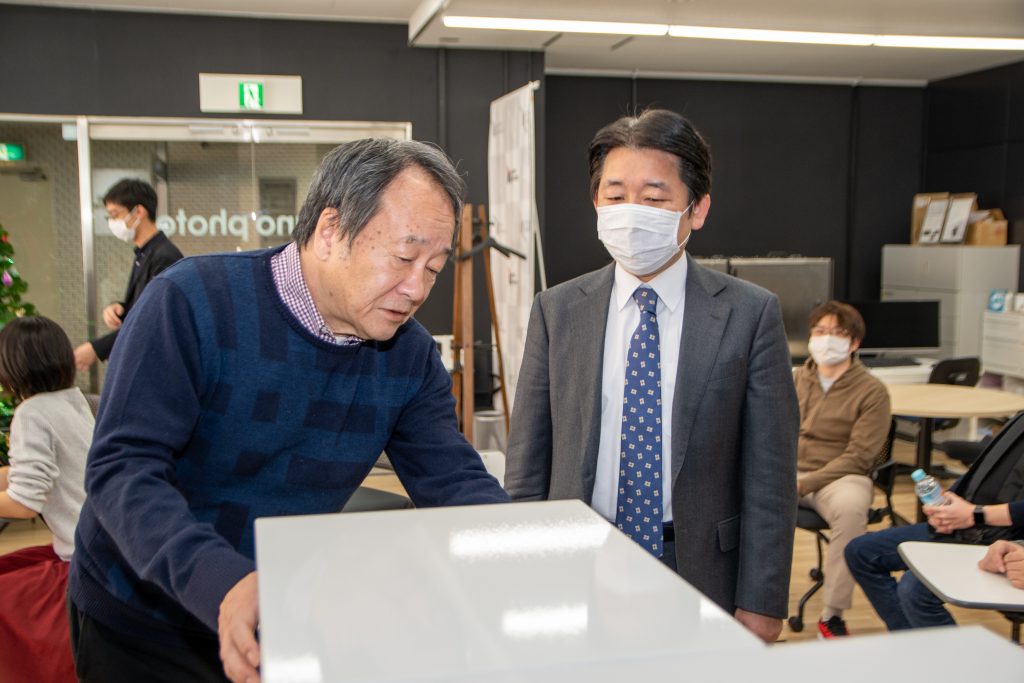
This lecture was a joint project of Tokyo and Osaka of Kagakusha Ishin Juku. It was held at Nanophoton’s Osaka showroom and 10 people gathered. Members from Tokyo participated online.
The lecturer, Representative Umemura, is 46 years old and was born in Sakai City, Osaka Prefecture. After graduating from medical school in 2001, he worked at Minoh City Hospital and Osaka University Hospital. He was elected to the House of Councillors for the first time in 2007, and was elected for the second time in 2019. He is currently a member of the Japan Restoration Party. He is currently a member of the Japan Restoration Party.
It has been eight years since he gave a lecture at the Kagakusha Ishin Juku. The last time, in December 2013, he spoke on the topic of “A Doctor of Science Becomes a Politician. This time, the theme is “COVID-19 and the Political Crisis from a Doctor and Politician’s Perspective.
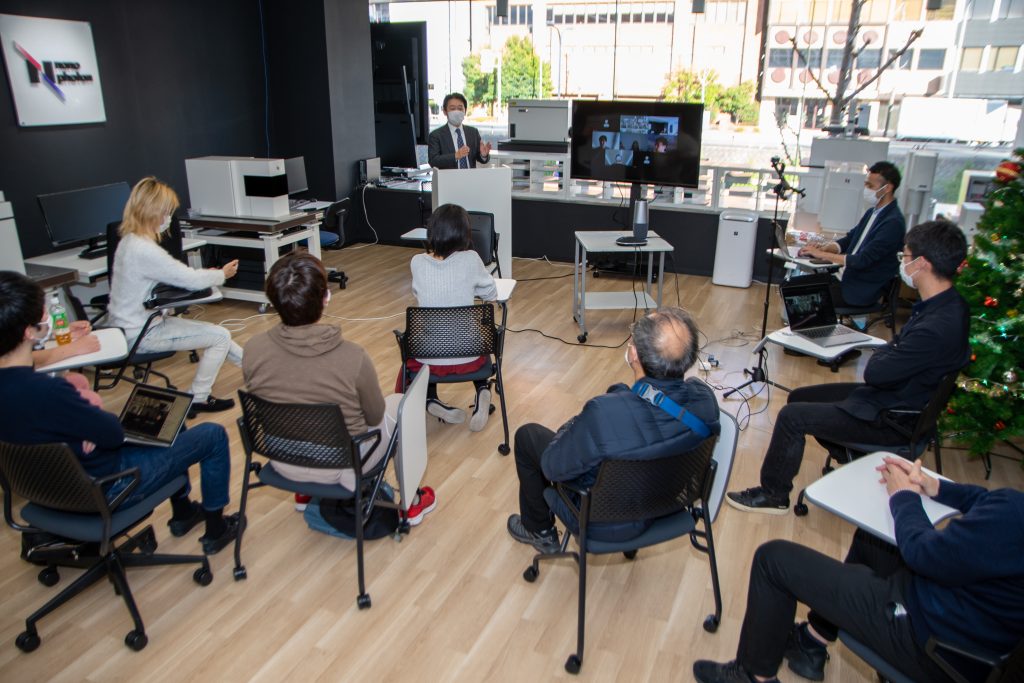
What left an impression on me was the story of the research that Dr. Umemura was conducting at Osaka University. Dr. Umemura belonged to the Department of Internal Medicine, and his specialty was metabolic syndrome. Currently, the standard for abdominal circumference is 85 cm for men and 90 cm for women. Recent year, I too exceeded this standard and received specific health guidance. The laboratory to which Dr. Umemura belonged created this standard.
However, Dr. Umemura began to tell us, “Nowadays, it is used for medical checkups for all Japanese people, but our laboratory created it for a different purpose.
Conventionally, it was known that the more visceral fat you have, the higher your blood pressure, blood sugar and triglyceride levels will be. Because of this relationship, people with a lot of visceral fat can improve their high blood pressure and other health problems as long as they reduce their visceral fat through exercise and dietary restriction. It is important to note that people who do not have a lot of visceral fat but have poor blood pressure and other numerical values. Even if you improve your lifestyle, you will not see any effect, and you will have to rely on medication.
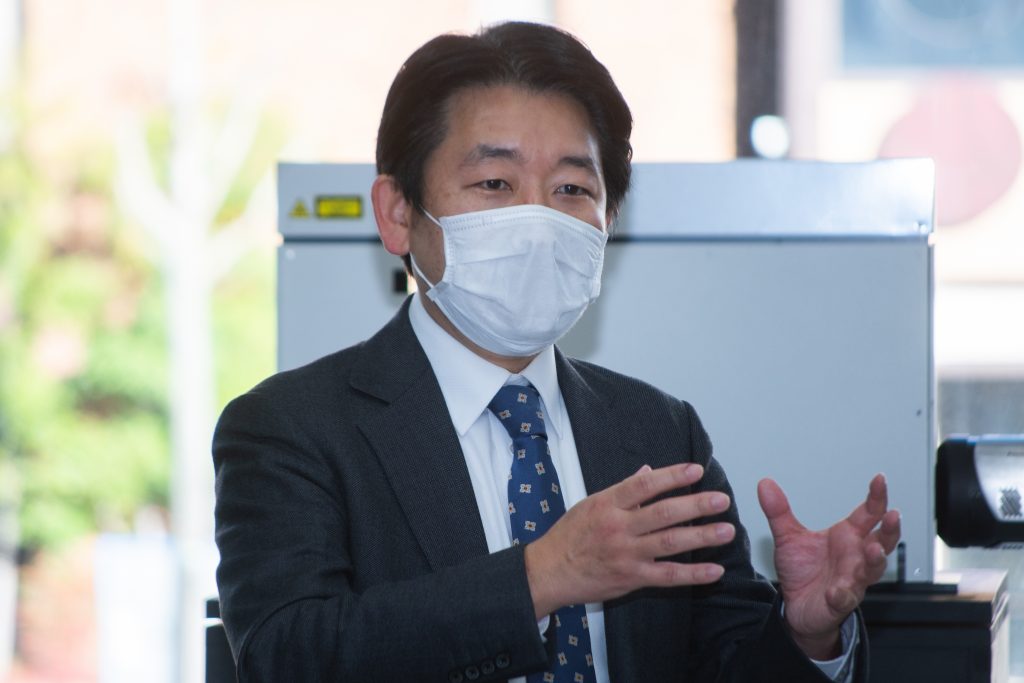
Dr. Umemura said, “The internal medicine lab I was in searched for criteria to determine how many centimeters or more of waist we should prioritize losing weight, and how many centimeters or less we should prioritize taking medication because there is no point in losing weight. That’s 85 centimeters for men and 90 centimeters for women. This data was created with the crystallization of our blood, sweat, tears, and sleep. However, the government started to say that anything over 85 centimeters is a disease called metabolic syndrome. The usage is different. From our point of view, people under 85 centimeters are more serious because they need to be treated with medicine,” he explained.
The story then moves on to the events that led me to enter the world of politics.
One day, a member of the House of Councillors visited Osaka University for a tour, and Dr. Umemura was appointed to accompany him. At that time, this councilor asked him if there was anything troubling in the medical world, and Umemura told him about the Fukushima Ohno Hospital incident. In 2004, a woman who underwent a C-section surgery at the hospital died, and more than a year later, the primary surgeon was arrested and prosecuted. The primary surgeon was found not guilty in 2008.
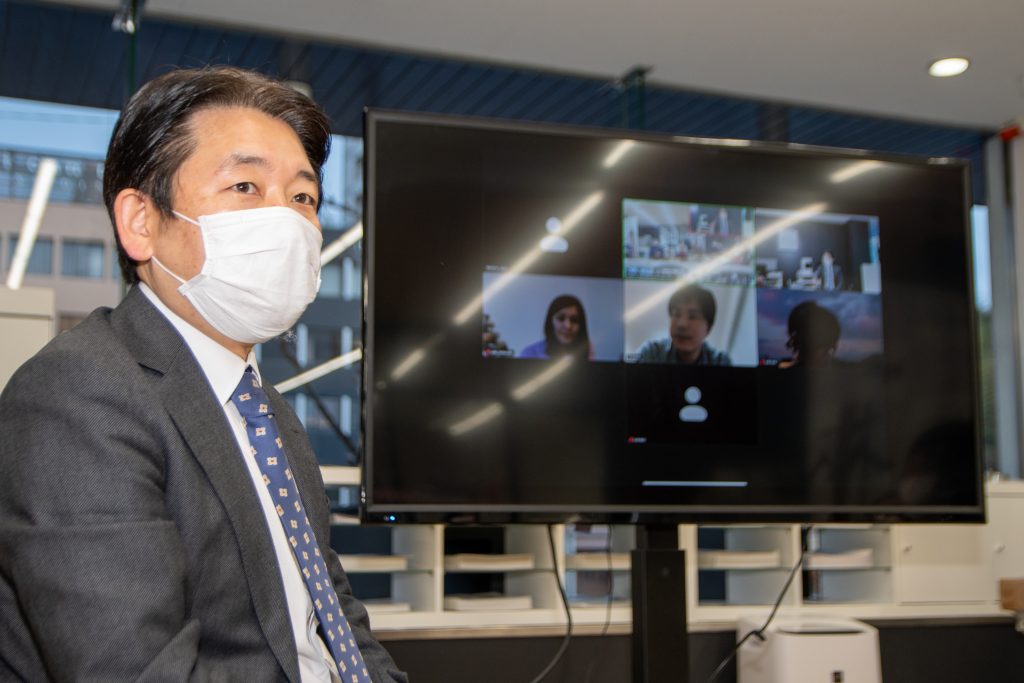
Dr. Umemura told the councilor, “I think it’s a terrible thing that she died, but the primary surgeon was arrested even though there was no fear of him escaping or destroying evidence, and his image was broadcasted throughout the country. From the point of view of someone who deals with life on a daily basis, I think it’s strange that people are taken to the police just because the outcome is bad, and that the situation is mixed up with murder charges. If left unchecked, no one will take risks in medicine. In fact, the number of medical students who wanted to study obstetrics and gynecology was decreasing.
This councilor was later found to have terminal cancer and gave up running for the House of Councillors the following year. He must have remembered the exchange at Osaka University. He asked Dr. Umemura to run. Umemura continued to refuse, but this councilor came to meet him to persuade him. He said, “If my seat is filled by someone else, he probably won’t implement the policies that Dr. Umemura mentioned. If you want to prevent people from being arrested in the medical field, isn’t coming to this seat the most direct way to do that? With those words, he decided to run for office.
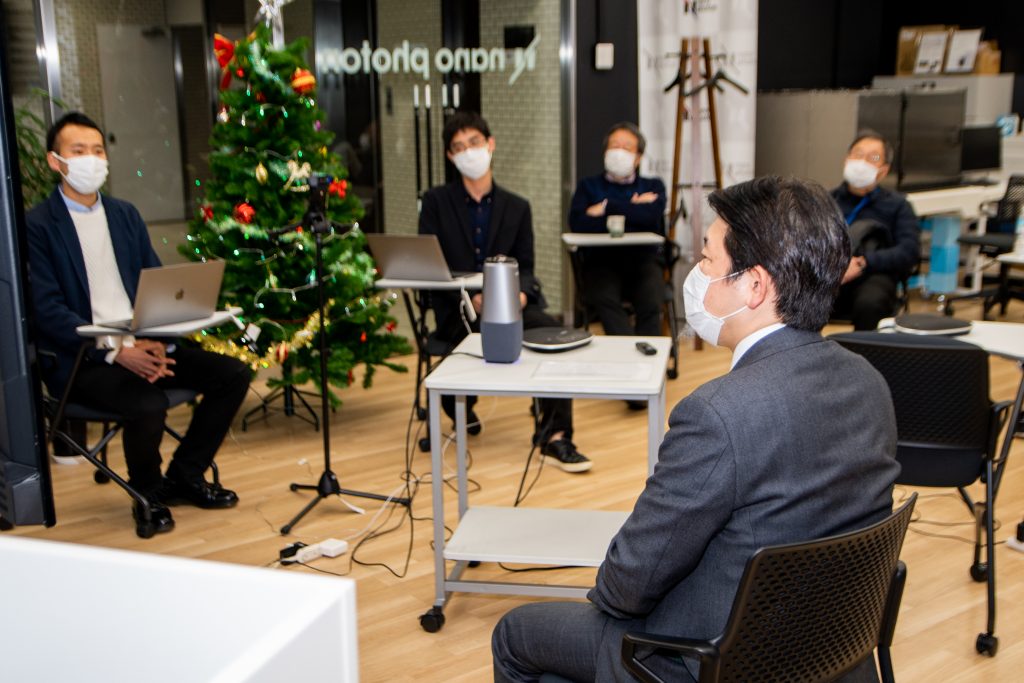
Other issues discussed included COVID-19, medical care, politics, and the media. With regard to COVID-19, he pointed out that the public health center is currently clogged up in dealing with all cases. “More than 80% of cases are mild or asymptomatic, but we don’t know who will become seriously ill with COVID-19. It is important to detect the disease at an early stage through testing and treat it as soon as possible”.
He also said, “You may not like the idea of going into politics, but it makes sense for a science major to go into politics”. It occurred to me, too, that the world of politics needs people who are trained in science-based thinking. If any of the members of this group decide to go into politics, it will be because of this lecture.